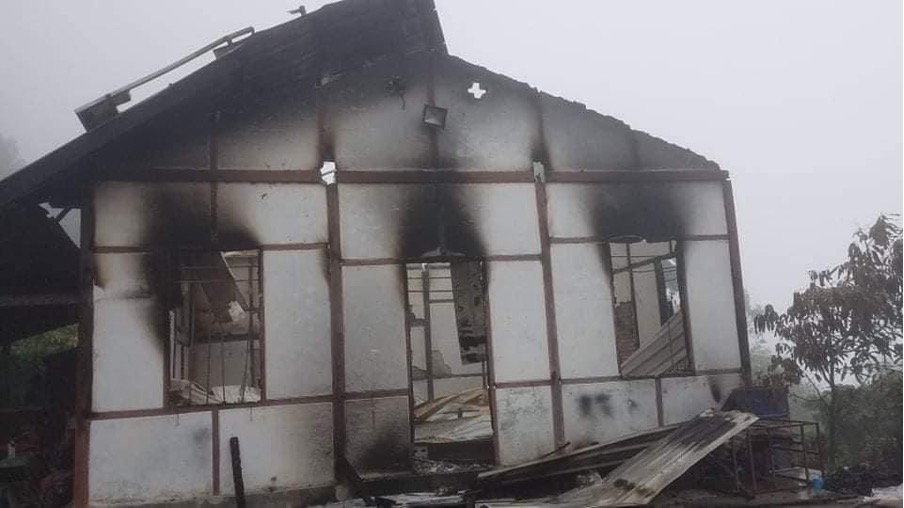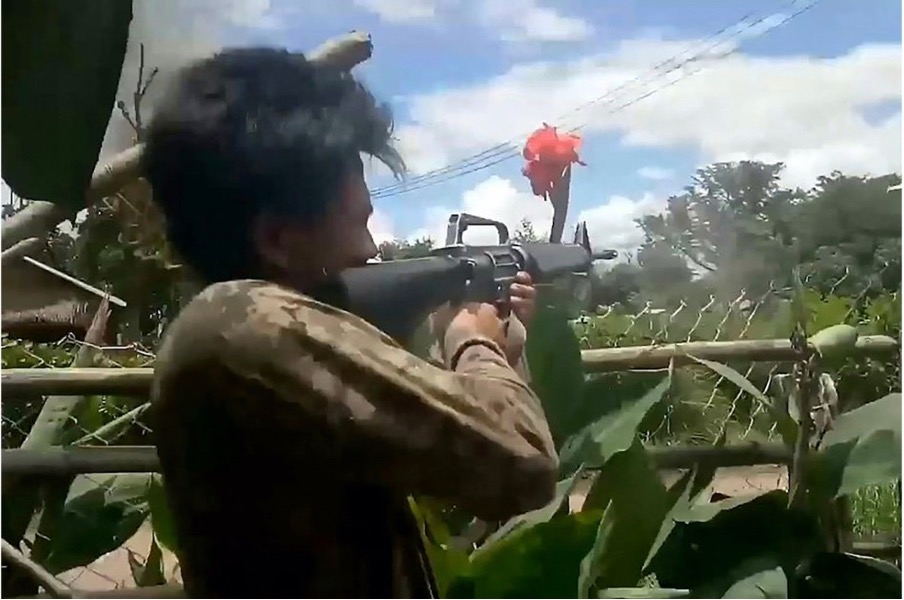Table of Contents
13th June 2021
The destruction of facilities essential for everyday life continues and in Chin State, one of the coffee processing factories supported by the DaNa Facility was destroyed. The DaNa facility is a 5-year programme supported by UKaid and won 2nd prize in one of the business planning competitions. The Junta is causing damage to similar projects throughout the country, resulting in years of development work going down the tubes.

With every day that passes, it is becoming more and more apparent that the Junta badly misjudged the situation when they took over on February 1st. They are now leading the country down the path of destruction and it seems that nothing will deter them from this course of action.
They have destroyed value in the country, they have destroyed the financial system and they have destroyed lives. It is also becoming apparent that the world is now taking a wait and see position, and no one seems to be driving action against Myanmar.
The Chinese will, as usual, try to find ways to exploit the situation, but they will risk undoing much of their regional political capital if they get too involved directly. The only excuse they would have would be if the Junta invited them in to protect their investments in Myanmar, but this would risk aggravating Japan who is the major foreign aid donor to Myanmar.
Beyond the superpower rivalry, Japan, India and other regional actors are not keen to see Chinese influence grow in a desperate Myanmar.
That desperation is growing. Waves of refugees are beginning to stream to Myanmar’s borders with Thailand and across the frontier into India, representing the front edge of a new humanitarian crisis that could come to rival the country’s earlier Rohinyga exodus.
Economically and financially, the country is on the verge of collapse, driving out many of the Western investors who entered the country in hopes of a democratic transition. But there are growing signs that China sees opportunity in Myanmar’s crisis.
At a regional meeting in Chongqing on June 8, Chinese Foreign Minister Wang Yi assured his Myanmar counterpart Wunna Maung Maung Lwin that bilateral relations have not been affected by what he referred to as “changes in Myanmar’s domestic and external situation.”
ASEAN’s inaction is likely to China’s liking. While Beijing may be concerned with Myanmar’s rising internal strife and intensified civil war — which now includes not only traditional ethnic armies but also a multitude of local forces in areas that have not seen fighting for decades — it has shown time and again that it can work together with Myanmar’s generals.
China has big geostrategic interests to protect in Myanmar and Beijing has always sided with the political camp that appears to have the upper hand. For now, that’s Min Aung Hlaing’s unpopular junta.
Myanmar is the only neighbouring country that provides China with direct access to the Indian Ocean. That allows Chinese shipments of fuel and other key imports to bypass the disputed waters of the South China Sea and the Malacca Strait chokepoint that Beijing fears could be blocked in any conflict scenario with the US.
Still, it is in Washington’s strategic interest to strengthen the forces that are opposed to Myanmar’s military to avoid the country once again becoming a dependent client of China.
According to internal Myanmar army documents reviewed by Asia Times, it was top brass concern about the nation’s dependence on China and the need to counterbalance that with improved relations with the West that led to their introduction of a more open society in 2011-2012.
Relations with the West improved until the Myanmar army drove hundreds of thousands of Muslim Rohingyas over the border to Bangladesh in 2017 and pro-democracy icon Aung San Suu Kyi refused to condemn the atrocities.
While the US and EU have openly condemned the democratic reversal, Japan’s and even more so India’s responses to the upheaval have been less overtly critical. Japan has not joined the West in imposing new sanctions or even come out to strongly condemn the killings and torture of opponents to Min Aung Hlaing’s regime.
For the same reason, India now faces a huge dilemma and is particularly averse to China making deeper post-coup inroads into Myanmar. New Delhi doesn’t want to antagonize the Myanmar military, with which it has recently improved ties including through a submarine sale, at the same time it is the only country that so far has received a significant number of refugees.
According to local sources, there are now 21,000 refugees in the north-eastern state of Mizoram and an unknown number in adjacent areas in Manipur.
Both states border Myanmar and the Mizos are closely related to the Chins across the border so local authorities have ignored appeals from the central government in New Delhi not to accept refugees from Myanmar. Chin state is one of the parts of Myanmar where armed conflict rages between the military and local resistance forces.
Four months after Myanmar’s coup, the resulting crisis is no longer a mere internal affair. But what happens next in Myanmar is a question not even its most famous soothsayers and astrologers — nor Western political and military analysts — dare to predict.
The only certain thing is that Min Aung Hlaing did not anticipate the scale, scope and longevity of resistance to his democracy-suspending coup, a miscalculation that has exposed his country to new great power machinations and interventions that will further fuel the instability he stoked and can’t extinguish.
Source Asia Times 12th June 2021.

The longer it goes on, the more complicated the situation will be. If there is one thing other than internal dissent within the military that will bring down the Junta it will be the total collapse of the commercial and banking systems in the country.
Please share this article so that others can discover The BFD









